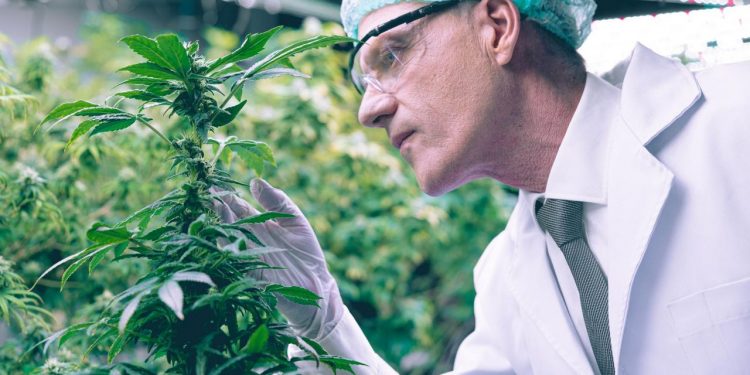Let’s start with the basics. Cannabidiol, or CBD as it’s commonly known, is a naturally occurring compound found in the cannabis plant. Unlike its cousin, delta-9-tetrahydrocannabinol (THC), which is the major active ingredient in marijuana, CBD is not psychoactive. This means it doesn’t get you “high.”
CBD is legal in many parts of the world, including the United States, as long as it’s derived from hemp and not marijuana. However, the laws can vary from state to state and country to country, so it’s always a good idea to check your local regulations.
Understanding the Spectrum: Broad vs Full
What is Full Spectrum CBD?
Full Spectrum CBD includes all the cannabinoids found in the cannabis plant, including THC. However, the THC content in full spectrum CBD is usually at a concentration of 0.3% or less, which is not enough to produce a “high.”
What is Broad Spectrum CBD?
Broad Spectrum CBD, on the other hand, includes a range of cannabinoids, but it is typically completely free of THC. This makes it a good option for those who want to avoid THC entirely.
The Benefits of Full Spectrum CBD
Full Spectrum CBD is often praised for its “entourage effect,” which refers to the enhanced effectiveness of CBD when it’s combined with other cannabinoids and plant compounds. This can make it a powerful option for those looking for relief from various health conditions.
The Benefits of Broad Spectrum CBD
Broad Spectrum CBD offers many of the same benefits as Full Spectrum CBD, but without the THC. This makes it a great option for those who are sensitive to THC or who are subject to regular drug testing.
Full Spectrum vs Broad Spectrum: Which is Right for You?
The choice between Full Spectrum and Broad Spectrum CBD ultimately comes down to personal preference and individual needs. If you’re looking for the most potent effects and aren’t concerned about small amounts of THC, Full Spectrum CBD may be the best choice. However, if you want to avoid THC entirely, Broad Spectrum CBD would be the way to go.
Conclusion
Whether you choose Full Spectrum or Broad Spectrum CBD, both offer a range of health benefits and can be a valuable addition to your wellness routine. As always, it’s important to do your own research and consult with a healthcare professional before starting any new health regimen.
FAQs
- What is the difference between Full Spectrum and Broad Spectrum CBD?
- Full Spectrum CBD contains all cannabinoids found in the cannabis plant, including THC (though in very small amounts), while Broad Spectrum CBD contains a range of cannabinoids but is typically free of THC.
- Is Full Spectrum or Broad Spectrum CBD better?
- The choice between broad spectrum vs full spectrum CBD depends on individual needs and preferences. Full Spectrum CBD may offer more potent effects due to the “entourage effect,” but Broad Spectrum CBD is a good option for those who want to avoid THC.
- Does Full Spectrum CBD get you high?
- No, the THC content in Full Spectrum CBD is usually at a concentration of 0.3% or less, which is not enough to produce a “high.”
- Is CBD legal?
- The legality of CBD can vary from country to country and state to state. It’s best to check your local laws.
- How can I take CBD?
- CBD can be taken in several ways, including as oil, edibles, or topicals.















